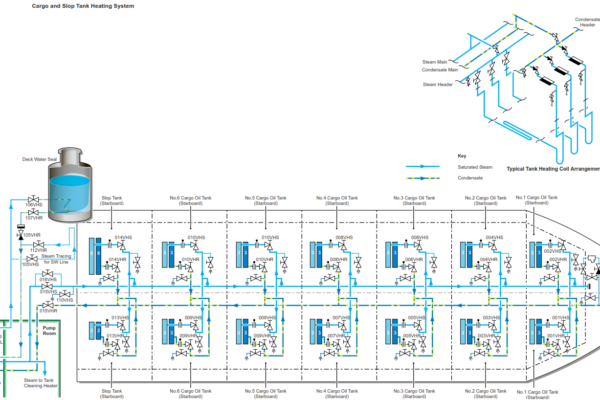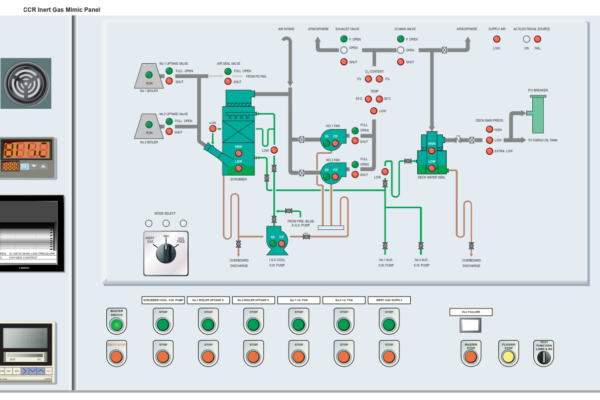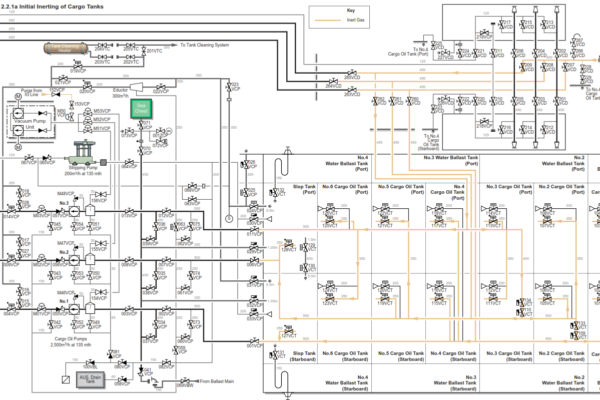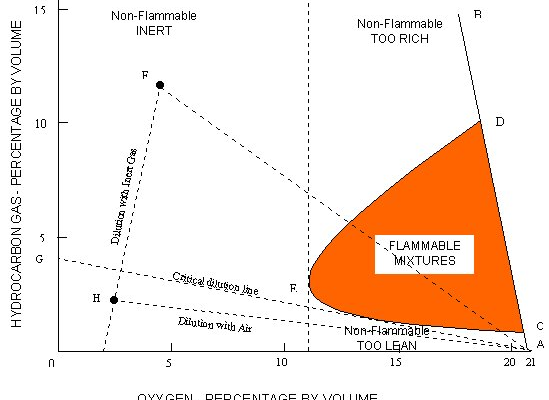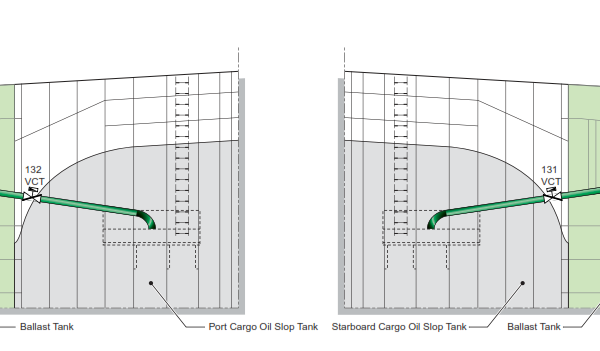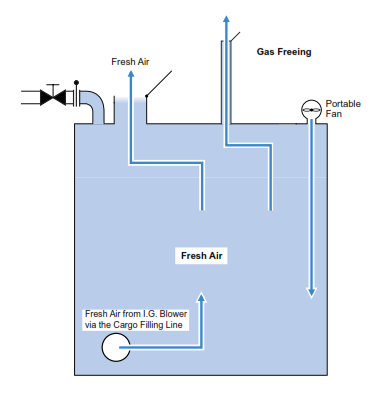SLOP TANK AND CARGO TANK HEATING
Both the port and starboard slop tanks are fitted with internal grid type heating coils. The port slop tank has eight coils fitted while the starboard slop tank has only two coils fitted. The cargo oil tanks each have three coils. The coils are supplied
